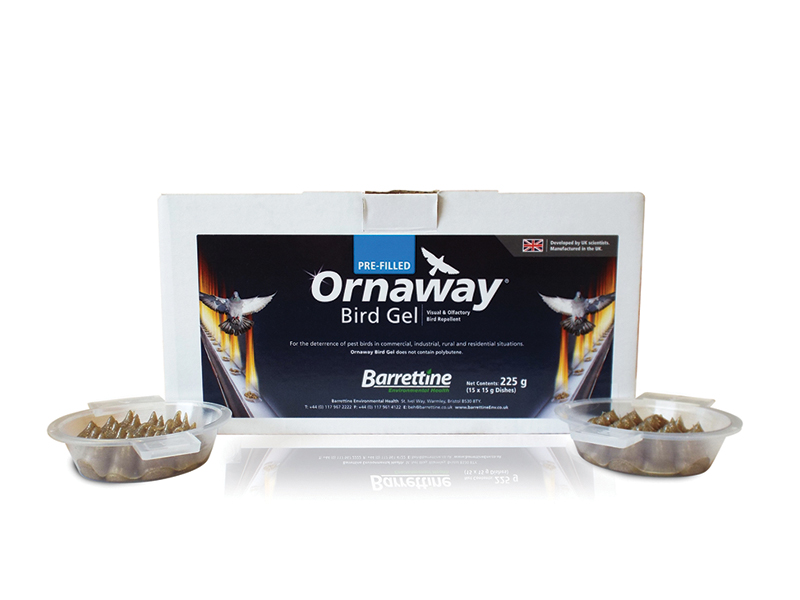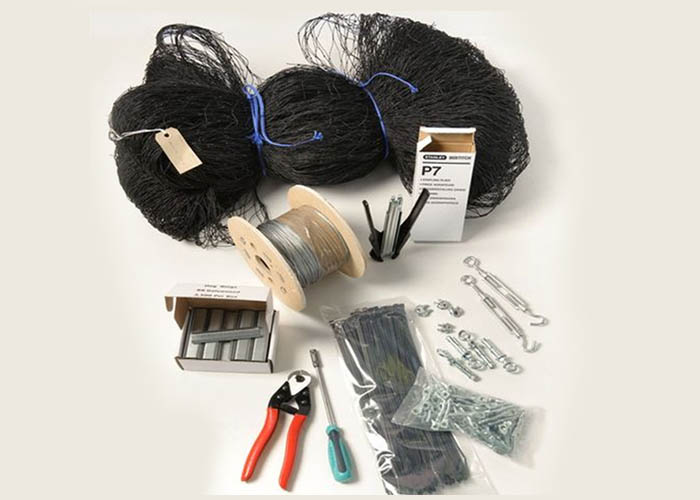Pest Bird Control Tips From UK Pest Control Experts
Pest birds can cause significant damage to properties, pose health risks, and create a nuisance for homeowners and businesses alike. Dealing with pest bird problems is a common challenge faced by many in the UK.
However, there are effective strategies and techniques that pest control experts employ to tackle this issue. We've condensed our knowledge of bird control into our top pest bird control tips.
So, let’s take a look at the best ways that you can handle this problem.
|
If you’re in a rush, here are our top pest bird control tips at a glance…
|
Identify the Problem Birds
The first step in bird pest control is to identify the specific bird species causing the issue.
Different bird species have different behaviours and habits, and understanding these nuances can help in implementing targeted control measures.
Once you know the specific bird species that are wreaking havoc in your garden, you can tailor your control strategies accordingly.
|
Common pest birds you may have encountered in the UK include:
|
Our Top 6 Pest Bird Control Tips & Bird-Proofing Measures
There are a few different ways that you can prevent or deter birds from nesting and roosting on your property. The method you choose or find most effective may depend on the species of bird you are dealing with, as well as your personal preferences and budget.
As suppliers of some of the most popular bird-proofing solutions in the UK, we have a run-down of the top 6 tips and measures for controlling pest birds.
1. Cover Plants & Buildings With Bird Netting
Birds often find their way into attics, warehouses, and other areas through openings such as vents, chimneys, and eaves. Installing bird netting or wire mesh can effectively seal off these entry points, preventing birds from gaining access.
It's important to inspect the premises thoroughly to identify potential entry points and address them promptly.
We recommend our 20mm Multi-Purpose, Heavy-Duty Bird Netting if you’re not sure what birds you’re dealing with. This netting is the most versatile in our range, with a mesh that can accommodate a wide range of bird sizes.
Plus, the polypropylene is weather-treated, UV-stabilised, and rot-proof, ensuring long-lasting protection for your property.
We can cut your net to size to fit any area, making installation quick and easy. Additionally, our bird netting is lightweight and flexible, allowing it to be installed on a variety of surfaces.
Shop Our Heavy-Duty Bird Netting
2. Employ Visual Bird Deterrents
Visual deterrents can scare away birds, such as predator decoys, reflectors, and scare balloons.
Predator decoys, like fake owls or hawks, create the illusion of a threat.
Reflectors and scare balloons use reflective surfaces or inflatable objects to create movements that disrupt birds' flight patterns. You can even use old CDs as they’ll reflect the light.
3. Install Bird Wire Systems
Bird wire systems are highly effective in deterring pest birds from landing and roosting on buildings and structures. These systems consist of thin stainless-steel wires that are suspended between posts or brackets.
The wires create an unstable landing surface, making it uncomfortable for birds to perch.
Our bird wire systems are discreet and visually unobtrusive, making them a popular choice for commercial buildings and architectural structures.
Our Bird Coil Wire is a great choice for bird-proofing building ledges and can be easily cut down to fit any size area. This makes is very effective, as you can customise it to fit your specific needs.
4. Use Bird Deterrent Spikes
Bird deterrent spikes are a highly effective method for preventing birds from roosting and nesting on ledges, window sills, and other flat surfaces.
Pigeon bird spikes are typically made from durable stainless steel or polycarbonate. They're easy to install and low-maintenance. They create an unwelcoming surface, discouraging birds from landing on your roof or ledges, preventing damage and mess.
We also stock larger gull bird spikes to prevent destructive seagulls from landing or nesting on your roof.
|
Bird spikes might look harsh, but despite their name, they're not sharp and don't cause any injury to birds. All they do is make it uncomfortable or impossible for birds to land where the spikes are. |
5. Employ Bird Gel Deterrents
Bird gel deterrents are an innovative solution to discourage birds from landing on surfaces without making changes to ledges.
Ornaway bird gels create a visual illusion that looks like fire to birds' visible light spectrum, making them perceive the area as too dangerous to approach.
The gel is non-toxic and safe for birds, humans, and pets, relying purely on the visual deterrent to keep birds at bay and prevent them from roosting or nesting in unwanted areas.
6. Remove Food Sources
Removing food sources can significantly reduce pest bird problems, as birds are often drawn to areas where they can easily access food.
Ensure all waste bins are covered, pick up any fallen fruit from trees, and avoid leaving bird feeders in problematic areas.
By eliminating accessible food, you make your property less attractive to pest birds, thereby discouraging them from lingering or nesting nearby.
Regular Maintenance & Monitoring of Your Bird Problem
Once you've installed your bird deterrents, you need to conduct regular maintenance and monitoring to make sure they're in good shape.
Check physical barriers, such as spikes and nets, for damage or signs of wear. Make sure the netting is still taut to prevent birds from getting stuck.
To maintain the integrity of the barriers, replace damaged parts promptly. Inspect the property for new roosting or nesting sites and take necessary action to address them.
The key to long-term bird control is ongoing maintenance and monitoring to ensure your deterrents of choice remain effective.
Understand the Legalities of Bird Control
Before taking any action against pest birds, it is crucial to be aware of the legalities surrounding bird control in the UK. Thankfully, we have laws to protect when and how we can remove birds from our property.
While this can be inconvenient, the laws are there for good reason and help to protect our natural ecosystems.
Wildlife and Countryside Act 1981
Certain bird species are protected under the Wildlife and Countryside Act 1981. Common pesky birds like pigeons and seagulls are on that list!
That means that disturbing their nests or eggs without proper authorisation is illegal. You must consult local authorities or pest control professionals to ensure compliance with the law while dealing with pest bird issues.
|
You can read more about the UK Bird Nesting Season: Species, Laws & Tips For Dealing With Nesting Birds to help you deal with pests appropriately. |
If All Else Fails…Seek Professional Assistance
If the pest bird problem persists despite your best efforts, you may want to seek professional assistance from pest control experts in the UK.
Professional pest control companies have the knowledge, experience, and resources to address challenging bird control situations effectively.
They can assess the severity of the infestation, develop a comprehensive control plan, and implement appropriate measures to resolve the issue.
Summary: Effective Pest Bird Control With Huck Nets
Using a mix of these pest bird control strategies can help manage and control bird problems effectively in the UK. It's important to assess the severity of the infestation, consult professionals, and tailor the measures to the specific bird species and environment.
By following these expert-recommended strategies, you can protect your property, reduce health risks, and create a more peaceful, bird-free living or working space.
Shop our full range of bird deterrents online at Huck Nets today! Find bird control solutions from netting to bird spikes for both domestic and commercial properties.
For expert advice on the most suitable bird control solutions for your needs, please contact our team.
Shop the Best Bird Deterrent Today
FAQs
What is the Most Effective Bird Control?
The most effective bird control method depends on the specific bird species and environment. Generally, a combination of bird netting, spikes, and visual or gel deterrents tailored to the specific circumstances yields the best results. A professional assessment can ensure the most suitable approach.
What are the Most Common Pest Birds in the UK?
You’re likely to find pigeons, seagulls, sparrows, and crows. However, you might find that swallows are a bit of an issue depending on where you live, as they love to make their home in the eaves of suburban buildings.
Can You Remove a Bird Nest?
Generally speaking, no. There are strict laws about tampering with the habitats of birds, even if they’re coming for your garden goodies. You might be able to take out an abandoned nest, but you’d need to be 100% sure that it’s not being used anymore.
Does Bird Netting Work?
Bird netting is a great solution for keeping birds off of your buildings. It can also be used across a range of other applications, including gardens, balconies, and terraces. Bird netting is the most humane way to keep birds away from your property or crops. Just make sure you install it correctly and check it regularly for any signs of damage or wear and tear.


